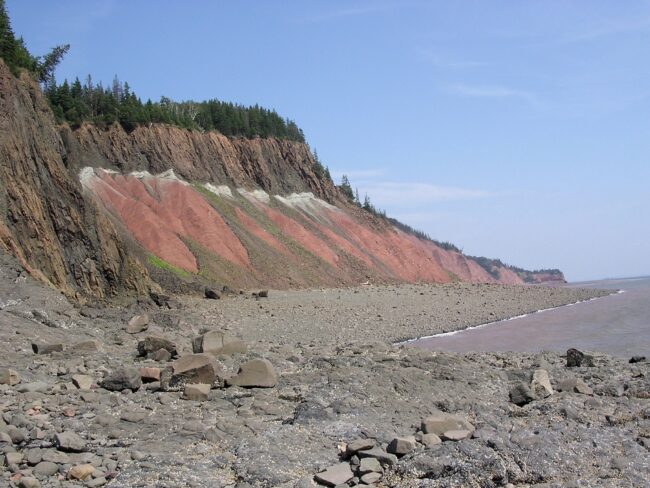evolution
-

Dinosaurs Thrived After Ice, Not Fire, Says a New Study of Ancient Volcanism
The leading hypothesis for a mass extinction that cleared the way for dinosaurs to dominate the Earth has long been excessive heat. A new study says the opposite.
-

Ancient Eggshell Fragments Crack Giant Elephant Bird’s Life Secrets
In a region where skeletal fossils are poorly preserved, old eggshells are opening a window into the evolution, diet and distribution of Madagascar’s extinct birds.
-

17 Million-Year-Old Teeth Open Windows Into Early Ape and Human Evolution
A new study shows that natural variants of oxygen within ancient animal teeth recorded details of seasonal rainfall, environmental conditions and animal behavior.
-

Project Will Delve Into How Climate and Tectonics Shaped Human Ancestors Over 25 Million Years
A new project will investigate the relationships between tectonics, climate and the evolution of humans’ primate ancestors in Kenya’s Turkana Basin.
-

The Next Climate Tech Breakthrough May Have Already Happened, We Just Didn’t Notice
How biomimicry and evolution can offer sustainable solutions for adaptation and resilience.
-

Contest Highlights Stunning Photos of Nature and Fieldwork
The contest, hosted Department of Ecology, Evolution, and Environmental Biology celebrates the beauty of their work.
-

Study Signals Change in How Scientists Calculate Ancient Diets
Scientists have long determined what extinct animals ate by analyzing carbon isotopes locked inside their fossil teeth. But a new study shows that in many cases, they may be plugging the wrong numbers into their equations. The findings may change some views of how mammals, including us, evolved.
-

So Much Depends on a Tree Guard
Adding protective barriers around street trees could reduce load on city sewers, study finds.
-

Ancient Humans Left Africa to Escape Drying Climate, Says Study
Ancient humans migrated out of Africa to escape a drying climate, says a new study—a finding that contradicts previous suggestions that ancient people were able to leave because a then-wet climate allowed them to cross the generally arid Horn of Africa and Middle East.

By studying thousands of buildings and analyzing their electricity use, Columbia Climate School Dean Alexis Abramson has been able to uncover ways to significantly cut energy consumption and emissions. Watch the Video: “Engineering a Cooler Future Through Smarter Buildings“
